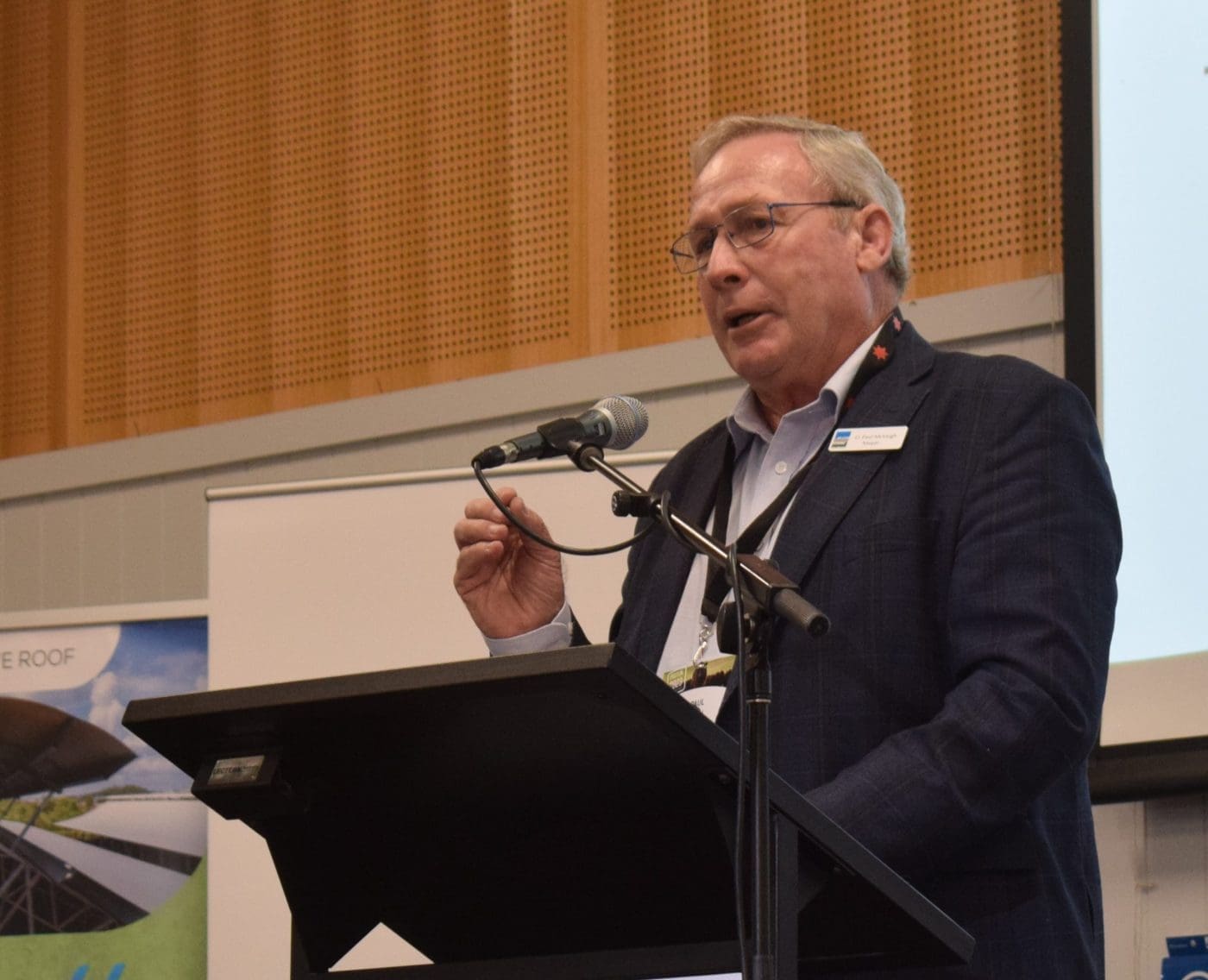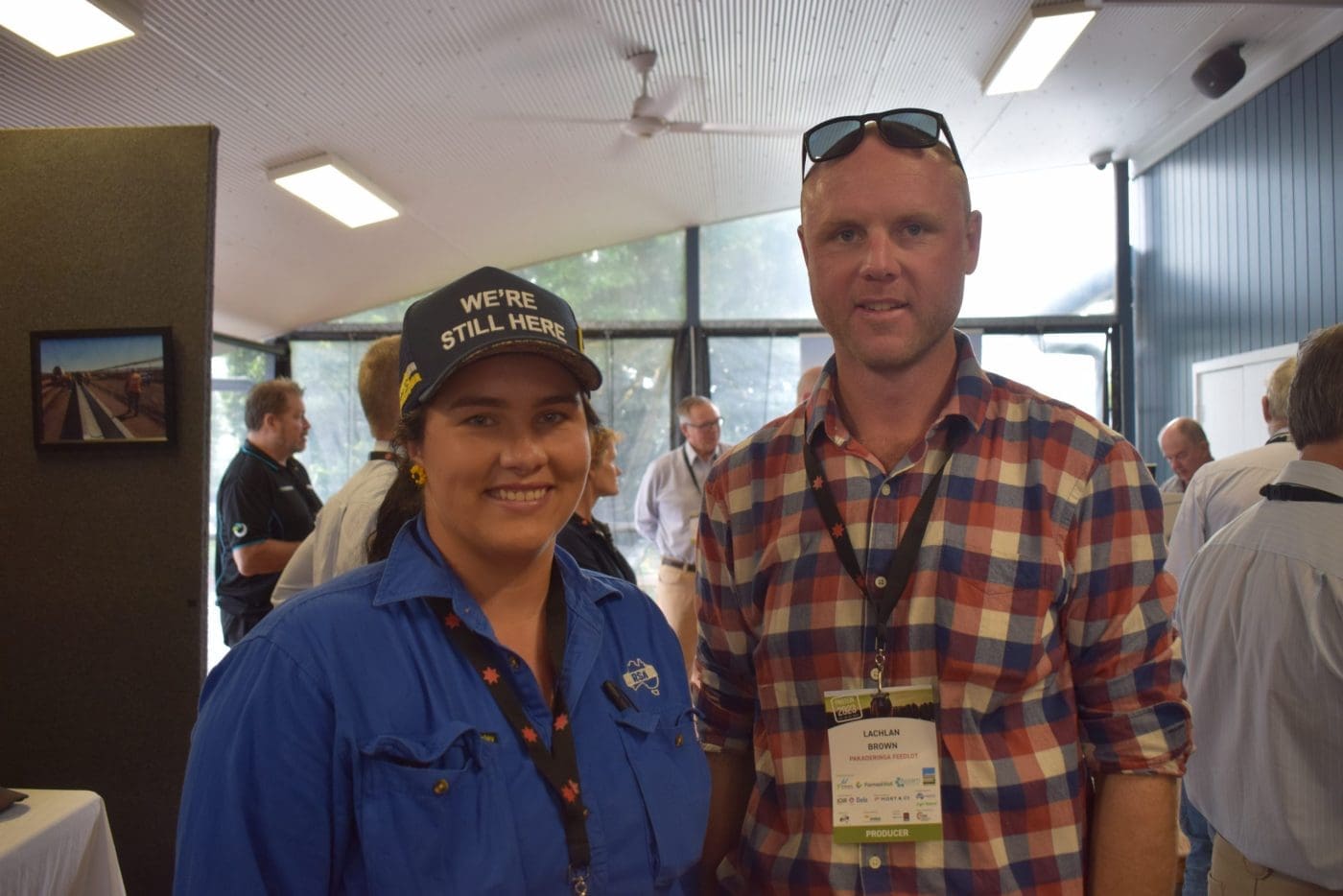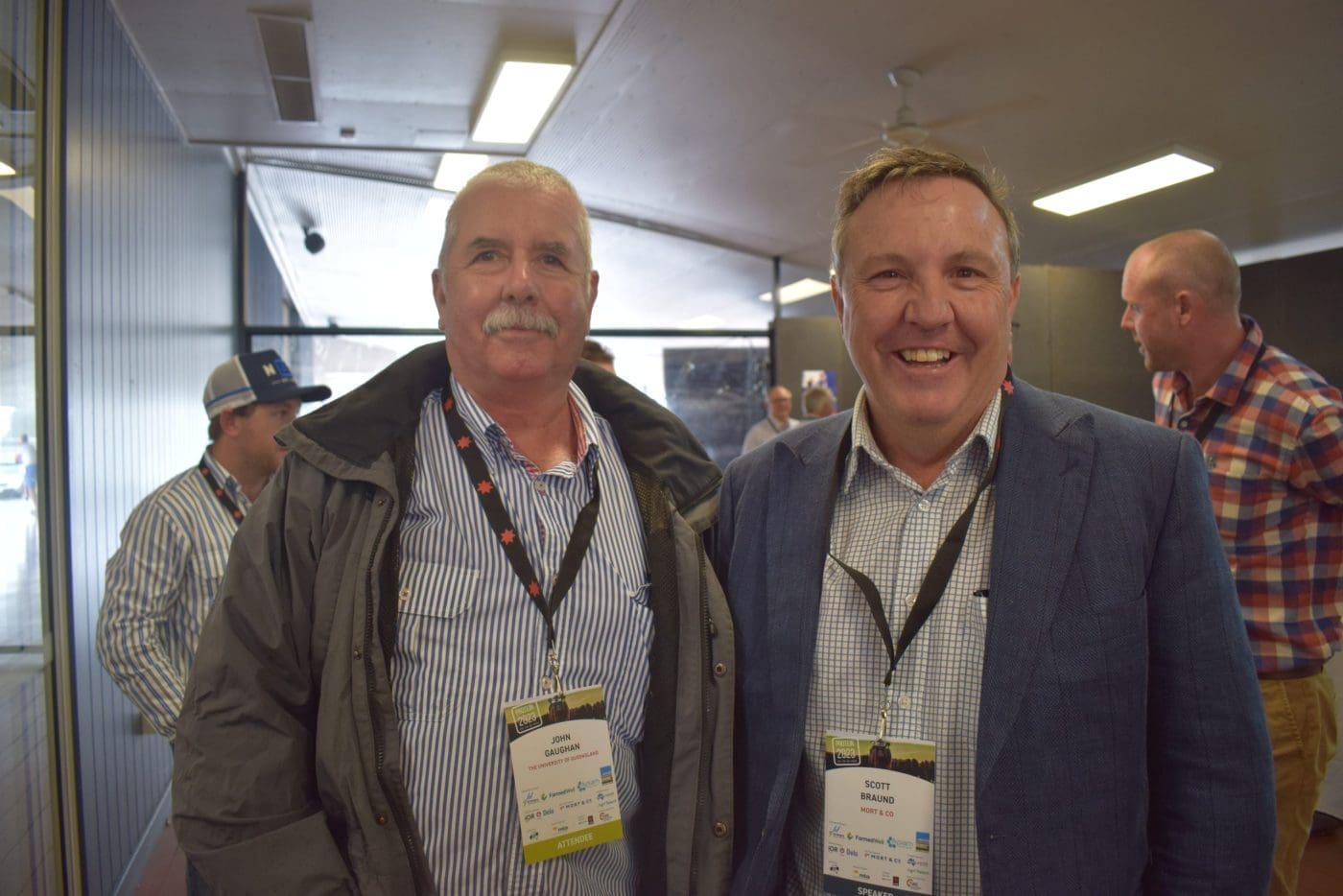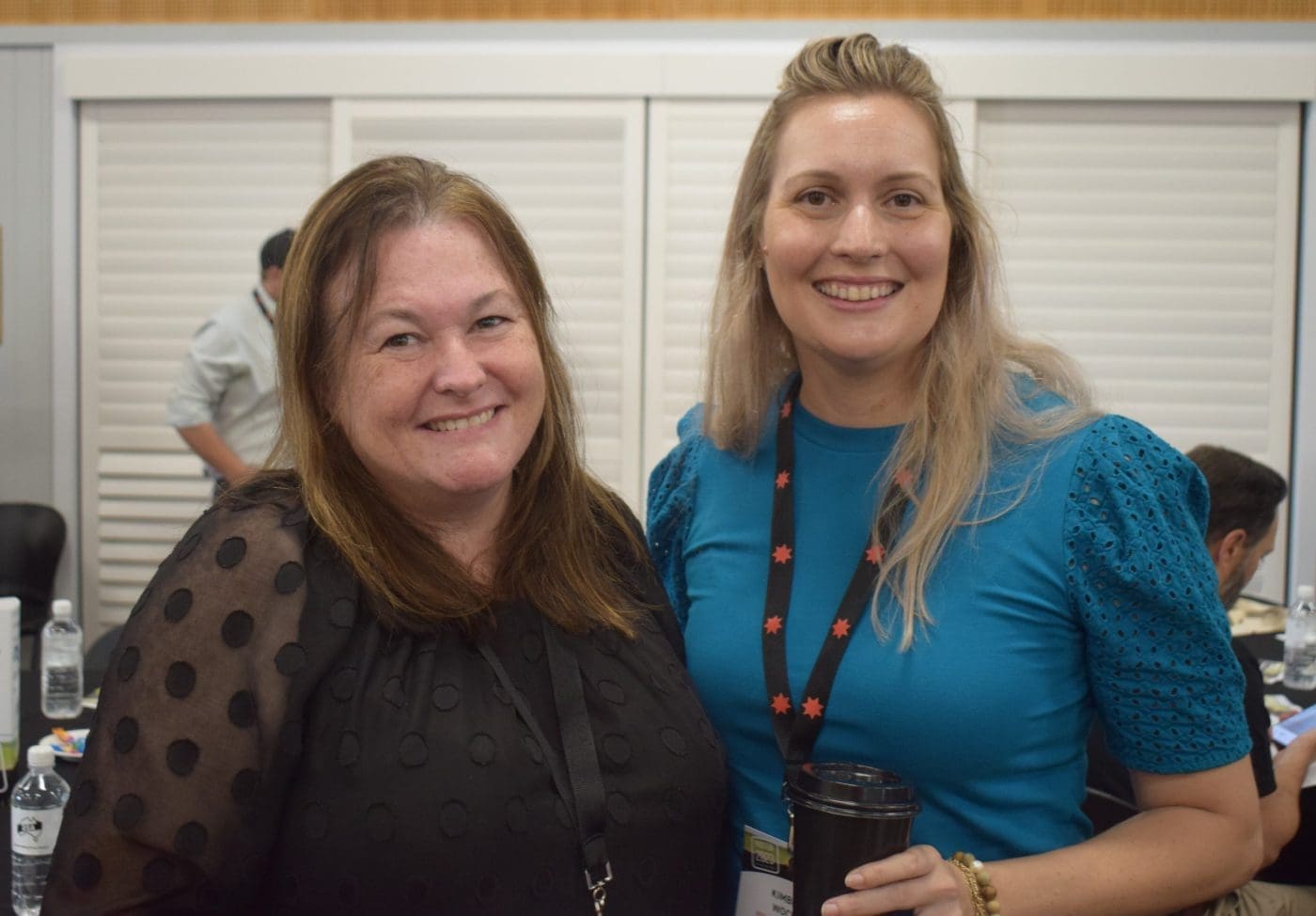ONE of Australia’s largest lotfeeding areas has outlined its intention to scale up intensive agriculture industries, reducing its time to approve new feedlot developments.
Toowoomba and Surat Basin Enterprise held its annual protein conference in Dalby today, with a general focus on the sustainability aspects of the supply chain.
Western Downs mayor Paul McVeigh said 42 percent of the nations feedlot capacity was within 200km of Dalby, across 57 registered feedlots – many of them featured in Beef Central’s top 25 lotfeeders countdown.
“Intensive agriculture and the livestock industry contribute nearly half of our agricultural output,” Mr McVeigh said.
“There are many feedlots in our neighbouring council areas of Toowoomba and Goondiwindi that also provide an opportunity to grow the capacity of our area.
“As council we have implemented a significant cultural change with our planning scheme – our primary focus is to enable development. We understand that reducing timeframes for development approvals mean so much to investors’ confidence in our region. Our approval time for a feedlot is around six weeks.”
Mr McVeigh said the council was also interested in poultry developments.
“We aggressively target businesses and industries who invest in and develop the Western Downs,” he said.
“The poultry industry has tremendous potential. With the poultry industry mainly being located towards the coast where it is having some trouble, we are encouraging them to come to our region.”
TSBE general manager Justin Heaven backed Mr McVeigh’s comments by saying “the Darling Downs is open for business”.
Science is with intensive agriculture
Intensive feeding industries also gained a vote of confidence from well-known scientist Peer Ederer, who is one of the main voices on the Dublin Declaration. He said in-terms of fulfilling the world’s protein requirements there was a lot of benefits of feeding animals grain.
“If I have a kg of wheat available, I am actually better off taking that wheat and feeding to an animal from a nutritional point of view,” he said.
“The notion that we are feeding our animals too many feedstocks at the expense of gaining enough human nutrition is fundamentally flawed. We should be feeding animals with plant-based materials because that is more cost-effective for human beings.”
- Beef Central will have more from the conference.
FACES FROM THE CONFERENCE
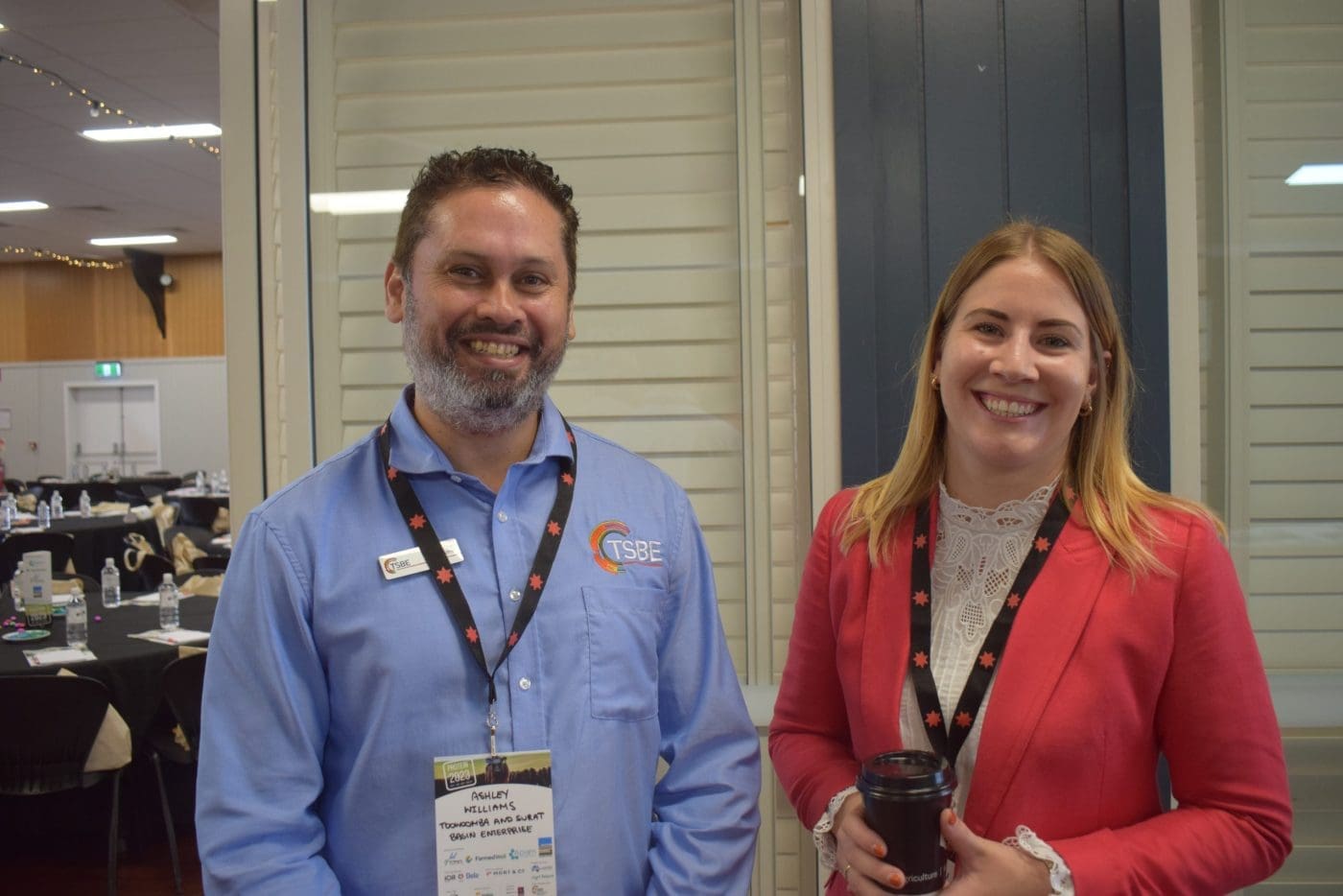
TSBE Indigenous business connector Ashley Williams with Western Downs Regional Council’s Lidewij Koene.
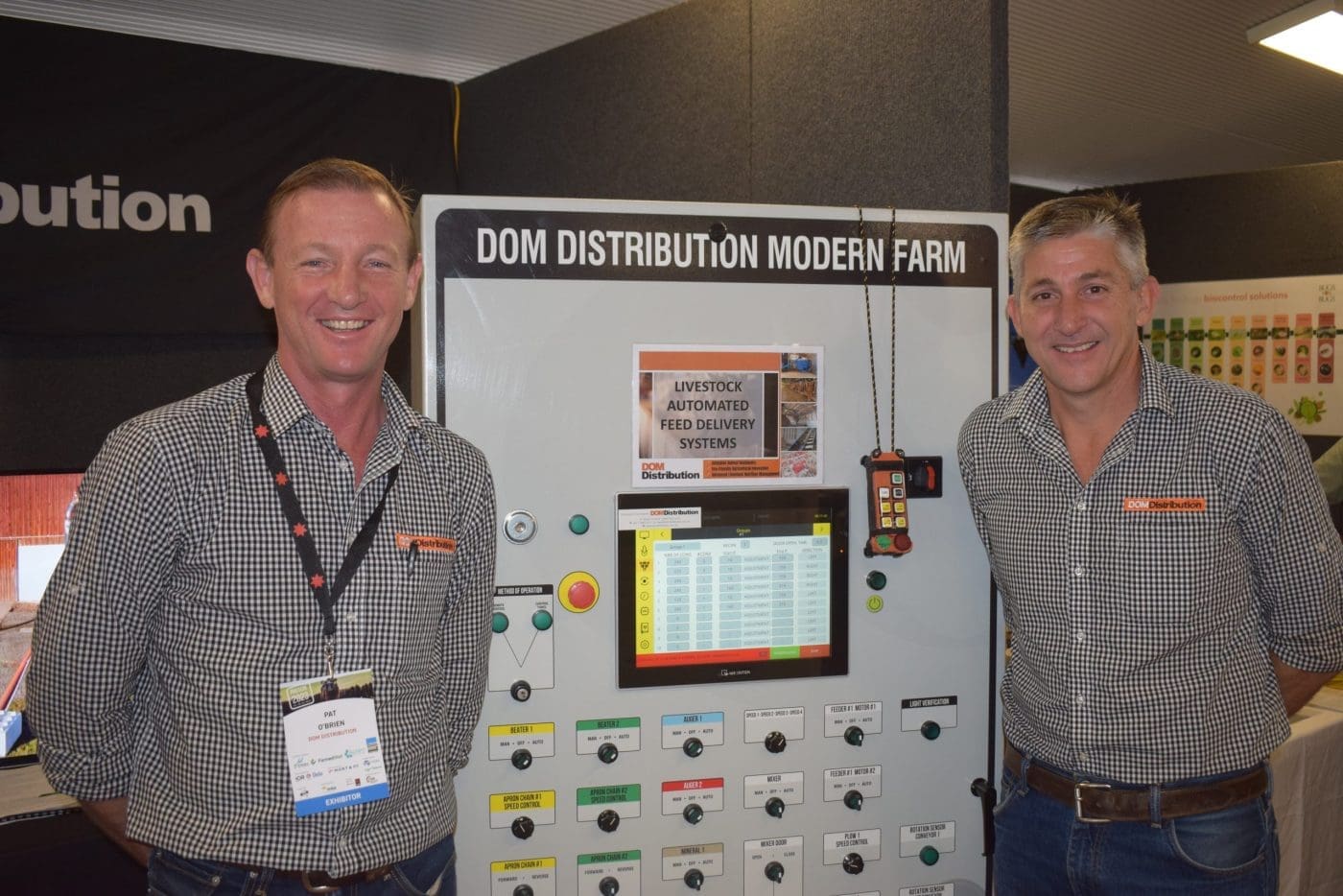
Pat O’Brien and Clinton Waldock from Dom Distribution who launched their new automated feeding system at the conference.
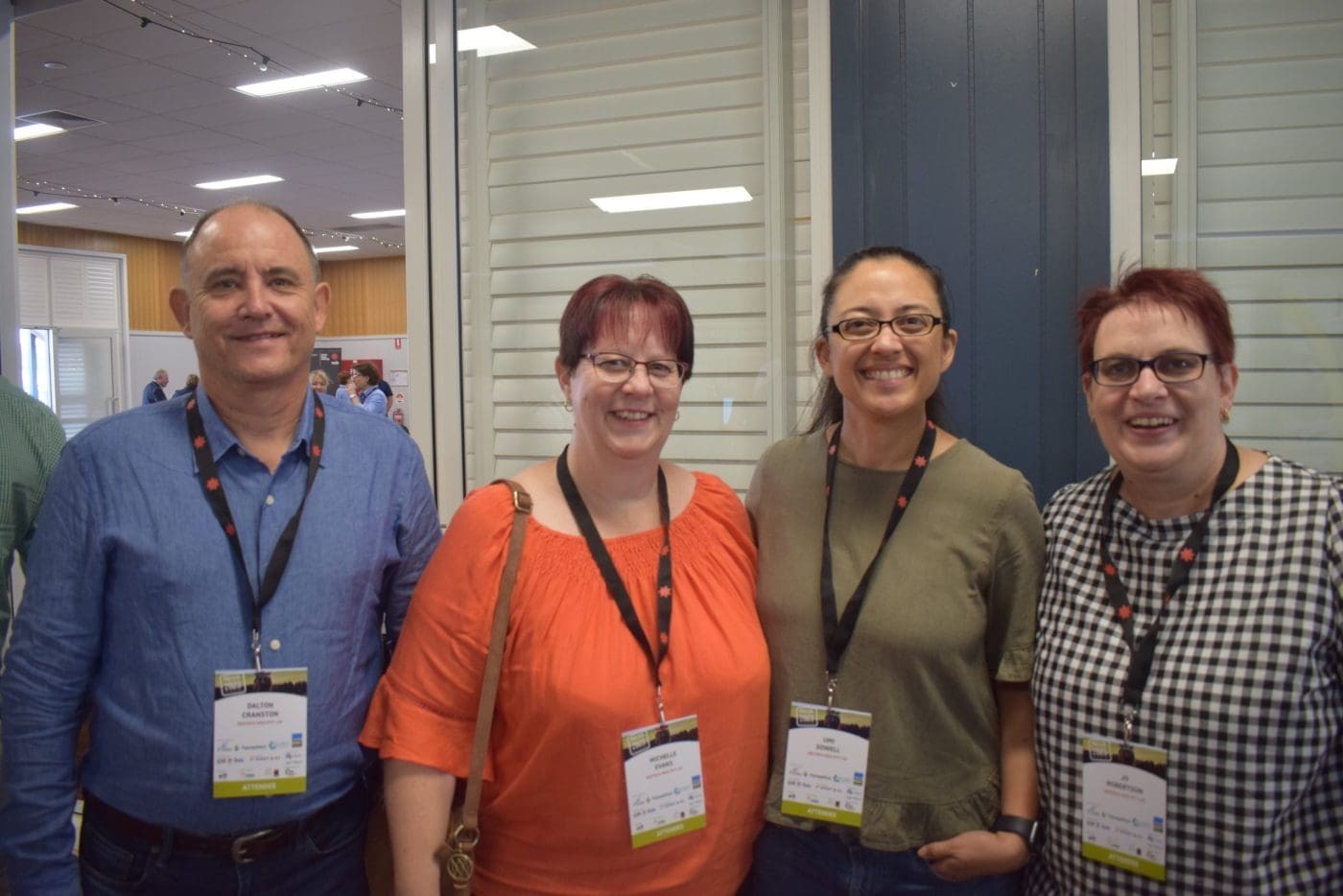
Dalton Cranston, Michelle Evans, Umi Dowell and Jo Robertson from Red Tech who have been researching certain trends with ear tags.

